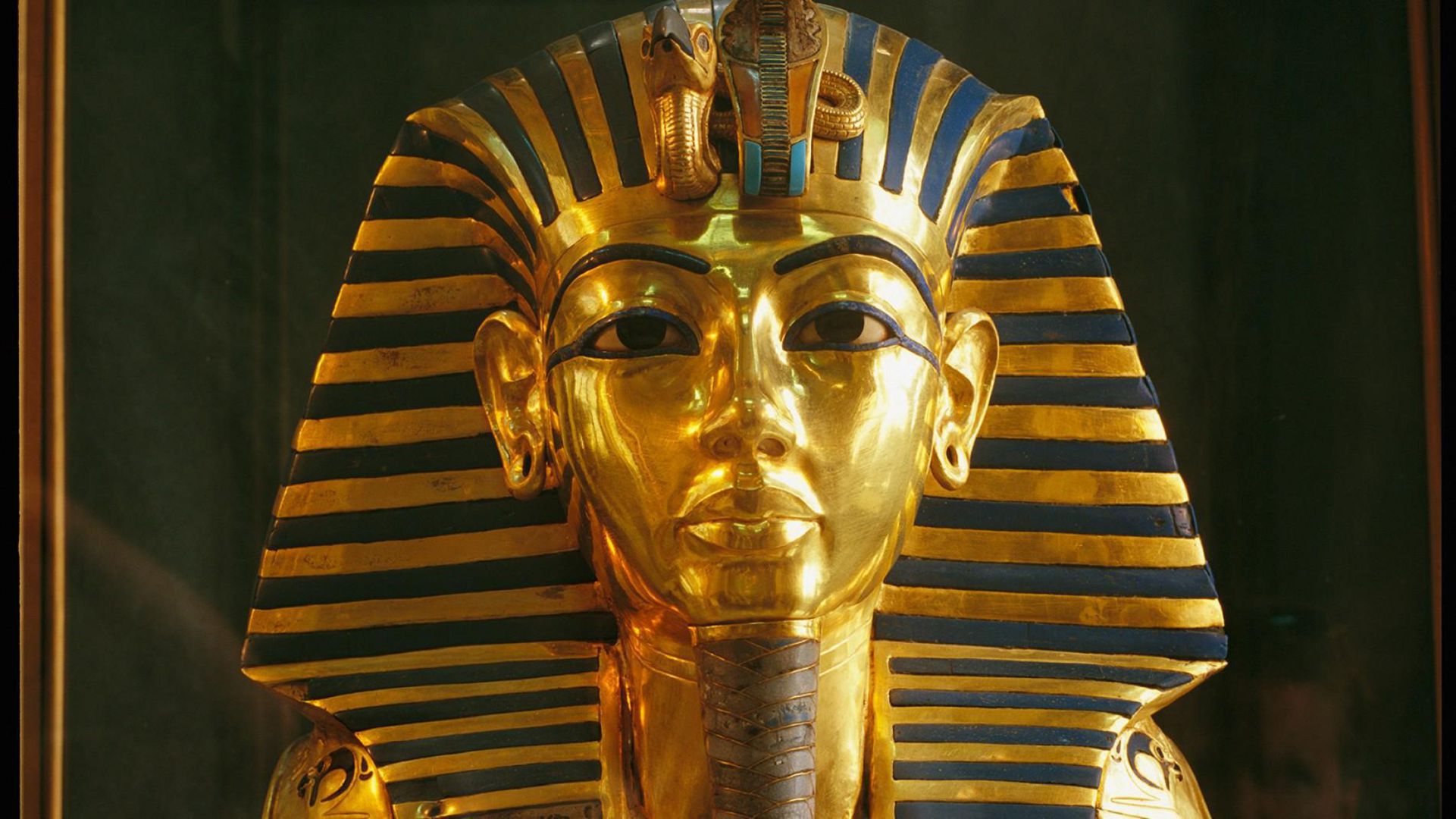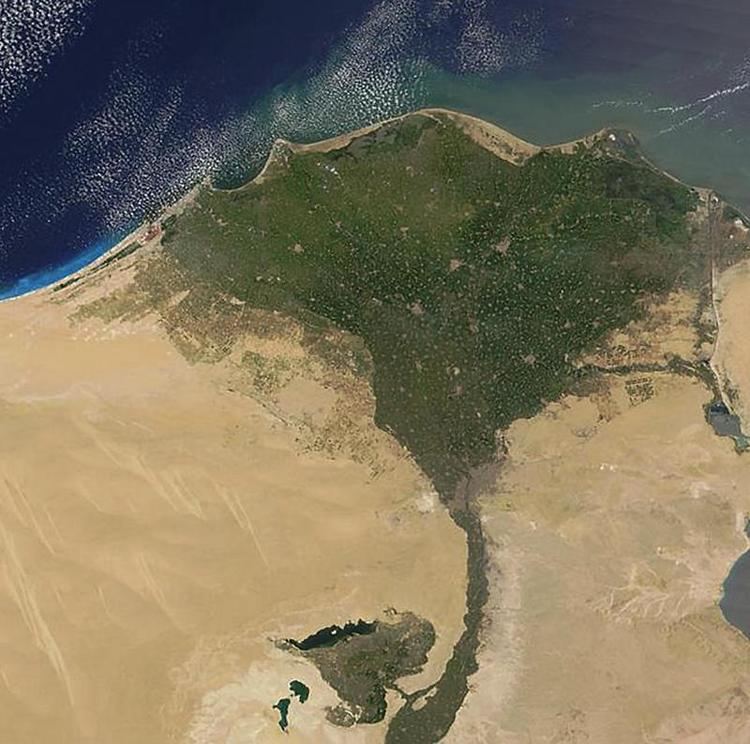The Allotted Exile of Israel in Egypt
There are two commonly accepted exiles of Israel: in Babylon and Rome. While much has been written about the Babylonian and the Roman exiles, there are two exiles about which we know very little: the Egyptian and the Arabian exiles. The term “exile of Israel in Egypt” sounds peculiar as we have not read anywhere in the Scripture that Israel had been sent in Egypt for any reason other than the famine in the land of Kana’an. Moreover, Torah is virtually silent about the period of time Israel was in Egypt. There is absence of any notes concerning the intended stay or exile of Israel in Egypt in Genesis and Exodus. Torah is indeed silent, but not the prophets (See Jos 24:14, Eze 20:5-9, and Eze 20:33-36). Such absence does not usually take place unless the account has been intentionally obscured or suppressed. This raises the inevitable question: What possible transgression had the patriarch Israel had done to deserve the exile in Egypt? Although most commentators have already treated the Babylonian and Roman exiles exhaustively, we will suggest our understanding to the reader’s consideration. In the following, we will explain what the reader needs to know about why the exile of Israel in Egypt was allotted. With that said, in Time of Reckoning Ministry (TORM), we do not ask the reader to substitute our judgment for his own. All information provided hereafter is for education and edification purposes only.
Israel went down to Egypt
As we explained in the article in Chapter In the Beginning of the present author’s book The Reckoning of Time, the children of Israel were in Egypt for 215 years. It is incorrect to say that they had been forgotten for all those years, because YHVH vowed to make Israel a great nation and gave them the promise that He would go down with them to Egypt and bring them back home. But sometime after the generation that went down to Egypt died, the Israelites that were born in the foreign land mingled themselves among the Egyptians and started to assimilate into the pagan culture; they began to feel more Egyptians than Hebrews. A remnant however remained in the land of Goshen, where Yoseph initially settled them in to keep them separated from the Egyptians. But there arose a new king over Egypt, who did not know Yoseph (Exo 1:8), and who did not trouble himself to know anything about what Yoseph had done for Egypt.
The children of Israel multiplied and prospered in the foreign land. The new Pharaoh hoped to break down their physical strength and lessen its increase by hard labor, for a population always grows more slowly under oppression. Israel was compelled to build provision cities (2Ch 32:28) in which the produce of the land was housed, partly for purposes of trade, and partly for provisioning the army in time of war. The fear of the Egyptians was that in case of war of Egypt with its neighbors, the Israelites might side with the enemies or even leave Egypt and move to the land of Kana’an from where they had originally come. And thus, the slavery of Israel in Egypt began.
Note: The present author has the reason to believe that the slavery did not just come upon the children of Israel, nor was it brought upon them by the new Pharaoh, but it was YHVH who caused it. That slavery was probably only eighty-eight years or more, as not all of the 215 years Israel spent in Egypt were of slavery, as we explained in the foresaid chapter.
The allotted time for Israel in Egypt
On his departure from Kana’an the patriarch Ya’akov received the promise, that the Elohim of his fathers would make him into a great nation and bring him up again to Kana’an. The fulfilment of this promise and hopes were all the longings and wishes Ya’akov had. YHVH Elohim said to him,
I am the El Elohim of your father. Do not be afraid to go down to Egypt, for I shall make you there into a great nation. I Myself am going down with you to Egypt, and I Myself shall certainly bring you up again. And let Yoseph put his hand on your eyes. (Gen 46:3-4) See also Gen 48:21.
We may ask the inevitable questions like: Why YHVH brought His people in Egypt to make them a great nation there? Could YHVH not have given Israel the Covenant on Mount Moriah instead of on Mount Sinai? Israel will become a great nation through trials in Egypt. But could Israel not become a great nation in Kana’an? Why did the nation have to go down to Egypt? How did the announcement that Israel would become a great nation while in Egypt console him over what he was afraid of? Clearly, Israel remembered the Covenant with his father Avraham that exile had already been decreed. No doubt Avraham had warned his son Yitschak and grandson Ya’akov of this decree. Because when Israel saw that there was plenty of food in Egypt, he must have immediately associated this with the fact that his descendants would endure exile there.
Know for certain that your seed are to be sojourners in a land that is not theirs and shall serve them, and they shall afflict them four hundred years. (Gen 15:13)
The future exile of Israel in Egypt is hinted in the words: “your seed are to be sojourners in a land that is not theirs and shall serve them, and they shall afflict them”.
Note: Why are the years of Israel’s sojourning different in Gen 15:13 and Exo 12:40? The answer to that question is given by the apostle Shaul in Gal 3:16-17, which we explained in Chapter In the Beginning of the present author’s book The Reckoning of Time.
Yoseph the governor of Egypt settled his father and brothers in the land of Goshen, where Israel would live his last days.
When the time came for Israel to be gathered to his fathers, upon his sickbed he called his sons and said, “Gather together, so that I declare to you what is to befall you in the last days” (Gen 49:1). YHVH revealed to the dying patriarch Israel the future history of his children and their development into tribes with prophetic clearness assigned to each of them. Thus, he relayed to his sons what would happen to them “in the last days,” but literally, “at the end of the days”. But at the end of days of what?
Often the prophecies have layered background, in which characters and events can be read in their immediate and future context. With that said, which end does our prophecy is concerned with: the end of the Egyptian exile (the immediate context), or the time of completion of the Messianic kingdom (the distant context)?
Israel died in Egypt, and Yoseph went up to bury his father. And with him went up all the servants of Pharaoh, the elders of his house, and all the elders of Egypt, and all the house of Yoseph, and his brothers, and his father’s house. Only their little ones, and their flocks, and their herds they left in the land of Goshen. And they came to the threshing-floor of Atad, which is beyond the Yarden and lamented there seven days for his father (Gen 50:7-10). Clearly Pharaoh recognized that Yoseph was the source of Egypt’s deliverance from the famine and the prosperity his country had under Yoseph’s guidance. But we begin to see subtle signs of a change here. Yoseph needed to gain permission to leave the country and promised to return to Egypt, especially expressed in the fact that the children of Israelites were to remain in their dwellings. And after he had buried his father, Yoseph returned to Egypt, he and his brothers and all who went up with him to bury his father. (Gen 50:14)
We should take note here that Israel, as a nation, at least partially left Egypt twelve years after the famine was over, but the decree was for many more years. The first of Israel’s sons to die in Egypt was the second youngest: Yoseph. Yoseph said to his brothers at the end of his days,
I am dying, but Elohim shall certainly visit you and bring you out of this land to the land of which He swore to Avraham, to Yitschak, and to Ya’akov.” And Yoseph made the children of Israel swear, saying, Elohim shall certainly visit you, and you shall bring up my bones from here. (Gen 50:24-25)
Yoseph made the children of Israel swear that whenever YHVH would visit them to take them up out of the land of Egypt, they were to take his bones with them. Yoseph’s final wish was not to be left behind in Egypt. We should notice that Yoseph did not ask that they were to take him up at once upon his death as his father did, because Yoseph understood that once he had passed, there would be no one with the power and influence upon Pharaoh to win such a permission.
But as the time of the promise drew near, which Elohim had sworn to Avraham, the people increased and multiplied in Egypt until another king arose who did not know Yoseph. (Act 7:17-18)
Why the Egyptian exile?
The patriarch Ya’akov left his father-in-law Lavan and headed for the land of Kana’an to unite with his father and mother. Years had passed after he returned to Kana’an, and Ya’akov had to go into an exile as decreed on account of the famine in the land of Kana’an. He departed for exile with all his offspring and with all his possessions. But before that episode, let us return to his exile in Haran and reason a little bit. Ya’akov and his mother Rivkah tricked Yitschak to bless him in the place of his brother Esav. To flee from the anger of his brother, Ya’akov had to go to the land of Lavan, Rivkah’s brother, where he was supposed to stay a few days, until his brother’s wrath turns away (Gen 27:4). Instead, Ya’akov remained in a foreign land not for a few days but for twenty years.
On the way to Haram, Ya’akov stopped over for the night. The narrative is very explicit to tell us that he came “upon the place”, and not “upon a[ny] place”. The use of the definite article means that “upon the place” refers to a specific and important place. According to the medieval Tanak commentator Rashi (Shlomo Yitzchaki, 1040 – 1105) and the interpretation of the Sages, Ya’akov came upon the place where Avraham and Yitschak had built an altar. That was place where his father was bound to the altar. The place was Mount Moriyah, where the future Temple would be erected. In his dream Ya’akov saw a ladder set up on the earth whose top reached to the heavens, and the messengers of Elohim going up and down. And he saw YHVH standing above it, saying,
I am Yehovah Elohim of Avraham your father and the Elohim of Yitschak. The land on which you are lying, I give it to you and your seed. And your seed shall be as the dust of the earth, and you shall break forth to the west and to the east, to the north and the south. And all the clans of the earth shall be blessed in you and in your seed. And behold, I am with you and shall guard you wherever you go and shall bring you back to this land. For I am not going to leave you until I have done what I have spoken to you. (Gen 28:13-15)
Early in the morning, Ya’akov set the stone on which he laid his head as a corner stone and proclaimed the place to be the House of Elohim (Beyth El) and poured oil on it, thus, the patriarch set the first stone for the future Temple in Jerusalem.
Note: The Temple in Jerusalem, in order for it to be the House of YHVH and the sacrifices brought in it, needs a first stone set up in the ground as a corner stone and an anointing oil poured on it. Then the construction can continue. This is what the patriarch prophetically did.
After these words from YHVH Himself, Ya’akov would not have needed any better assurance that [after a few days] he would return to his parents in the land of Kana’an in safety. Or would he?
Meanwhile, twenty years had already passed, and Ya’akov was on his way back home. This time he was not alone but with his four wives and twelve children. But when Ya’akov heard that his brother Esav was coming with many men to destroy him and his family, he became greatly troubled. He set the caravan into two camps in such a way that would increase the chance for survival if attacked, and in addition to this preparation he sent his brother a generous present (Gen 32:13-15) to mitigate his anger.
What does this short episode in the life of the patriarch teach us today? Was there anything wrong Ya’akov did to cause the exile in Egypt?
This is our understanding of the reason why Israel was sent in exile in Egypt. Ya’akov did not rely on the word of YHVH and on His promise that He would bring him whole in the Land of his fathers but placed his faith in the good will of his brother Esav instead. Yes, Ya’akov indeed had faith in the Elohim of Avraham and Yitschak. But since he did not have a complete faith in YHVH but in his brother’s good will, he was sent out of the Land into exile in a foreign land. But out of love for him and for the sake of his fathers, Avraham and Yitschak, YHVH did not call it “exile”; we did.
Sadly, Ya’akov’s children would not learn the lesson, namely, that whenever they would reject the Land, the Land would reject them too. The first to learn this lesson were the ten spies and the generation that rejected to enter the Land in the Exodus from Egypt. As a result of the rebellion, they were sent back to the desert for thirty-eight years (in what we call “the Arabian Exile“) until the generation would rise. And then the Babylonian exile came upon them for the same reason: the Land; they did not give the land its due rest in Sabbatical and Jubilee years. History goes on to repeats itself. The same story continues even today in the Roman exile, wherein the diaspora feels comfortably numb and refuses to come back home decades after the Roman exile officially ended in the year 1948.
Knowledge known to only a few will die out. If you feel blessed by these teachings of Time of Reckoning Ministry, help spread the word!
May we merit seeing the coming of our Mashiach speedily in our days!
Navah
This page contains sacred literature and the Name of the Creator. Please, do not deface, or discard, or use the Name in a casual manner.



